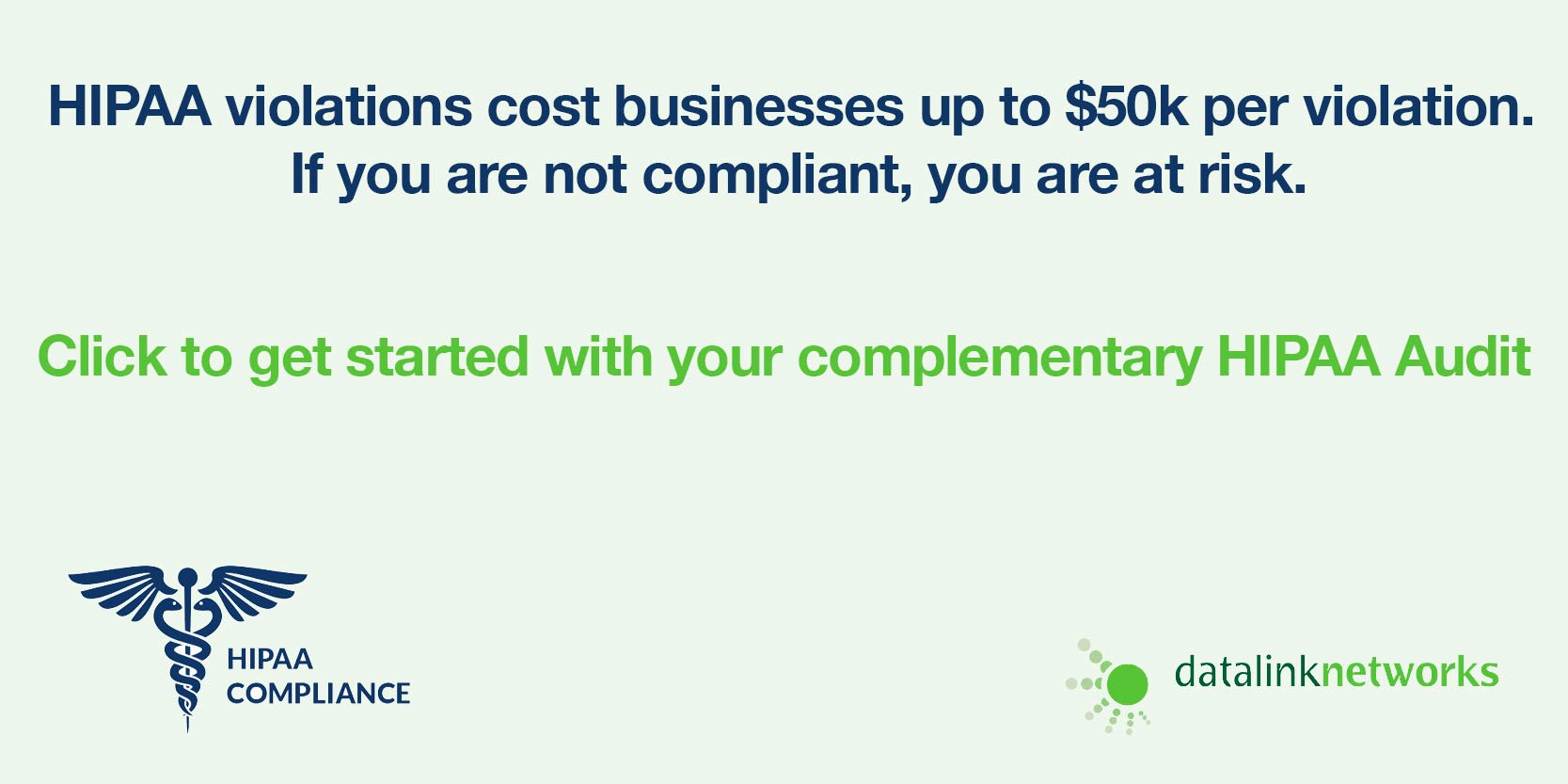If you’re a business owner, then you know that data security is of the utmost importance. In today’s digital world, where data breaches and cyber-attacks are on the rise, being HIPAA compliant has become essential for protecting your customer’s private information. That's why it's important to ensure that you and your employees are up-to-date on HIPAA compliant training.
By investing in HIPAA compliant training, you can ensure that your business is taking the necessary steps to protect customer data and avoid costly fines. Furthermore, having a team of employees who are well versed in HIPAA standards can give customers peace of mind that their data is being handled responsibly and securely. With proper training, your business can become a trusted source for customers looking for secure data storage and handling.
In this blog post, we'll look at what HIPAA compliant training involves and how it can benefit your business in the long run. We'll also outline some of the key steps you need to take in order to make sure your business is fully compliant with HIPAA standards.
What is HIPAA Certification?
There is no single “HIPAA Certification” that covered entities can obtain to show that they are compliant with HIPAA regulations. However, there are several organizations that offer certification programs for HIPAA compliance. These programs can provide helpful guidance on how to become compliant with HIPAA regulations.
What is HIPAA?
The Health Insurance Portability and Accountability Act (HIPAA) is a law that was passed in 1996 to protect the privacy of patients’ health information. The Department of Health and Human Services (HHS) enforces HIPAA regulations.
To become HIPAA compliant, covered entities must have security measures in place to protect the confidentiality, integrity, and availability of electronic protected health information (ePHI). These measures must be documented in a security management plan. Covered entities must also appoint a designated security officer who is responsible for overseeing the implementation of the security management plan.
Third-party service providers that have access to ePHI must also sign a Business Associate Agreement (BAA) with the covered entity, specifying the safeguards that will be put in place to protect the ePHI.
The Benefits of Getting HIPAA Certified
There are many benefits of being HIPAA certified. First, it shows that you are committed to protecting the privacy of your patients' health information. This can give you a competitive advantage when applying for jobs or contracting with new clients.
Second, it can help you avoid penalties and fines if you are found to be in violation of HIPAA privacy rules.
Finally, it demonstrates to your patients that you take their privacy seriously and are taking steps to protect their information.
The Disadvantages of Getting HIPAA Certified
There are a few potential disadvantages to becoming HIPAA certified. First, the process can be time consuming and expensive. You'll need to invest in training and resources, and the certification itself may cost money.
Second, compliance with HIPAA can be complex, and there's always the possibility of making mistakes. If you're not careful, you could end up violating HIPAA rules and facing penalties.
Finally, being HIPAA certified doesn't guarantee that your patients' information will always be safe. Even if you follow all the rules perfectly, someone could still hack into your system or steal physical records.
Steps to getting HIPAA Certification
There are four different types of HIPAA certifications: the Health Information Technician (HIT), the Health Information Manager (HIM), the Privacy Officer (PO), and the Security Officer (SO).
The HIT certification is for those who want to work with health information and medical records. The HIM certification is for those who want to manage health information. The PO certification is for those who want to work with patient privacy issues. The SO certification is for those who want to work with security issues related to health information.
There are four steps to getting HIPAA certification:
- Research which organization you need to contact in order to get certified. The Department of Health and Human Services (HHS) is the primary enforcer of the HIPAA rules, so you will likely need to contact them for certification.
- Make sure you understand the requirements for certification and complete any required training. You must have a complete understanding of the HIPAA Privacy Rule and Security Rule before beginning the certification process.
- Complete the application for certification. This can be done online or by mail, depending on the organization you are applying with.
- Pay the certification fee. The fee varies depending on the organization, but can range from around $100 to over $5,000.
What are the benefits of HIPAA training?
There are many benefits that come with HIPAA training for businesses. Perhaps most importantly, it helps to ensure that your employees are up to date on all of the latest HIPAA regulations. This not only protects your patients' privacy, but also helps to avoid any potential fines or other penalties that could be incurred if your employees are not in compliance with HIPAA rules.
In addition to keeping your employees compliant, HIPAA training can also help them to better understand how to protect patient data. This includes understanding when and how to share information, as well as proper procedures for handling patient records. By ensuring that your employees are properly trained on these matters, you can help to reduce the risk of a data breach or other incident that could jeopardize patient privacy.
Finally, HIPAA training can also help to improve the overall efficiency of your office. By having a clear understanding of the rules and regulations surrounding patient privacy, your staff will be better able to handle patient information in a way that is both compliant and efficient. This can save time and money for your business, while also protecting the privacy of your patients.
What are the advantages of having all medical staff trained on HIPAA guidelines?
There are numerous advantages to having all medical staff trained on HIPAA guidelines. Perhaps most importantly, it ensures that patient information is protected and secured in accordance with federal law. Additionally, HIPAA compliance training can help to prevent potential breaches of patient confidentiality, safeguard against identity theft, and ensure that your medical practice is operating in an ethical and legal manner.
In today's age of ever-increasing cyber threats, data breaches have become all too common. By ensuring that all of your medical staff are trained on HIPAA guidelines, you can help to protect your patients' information from being compromised. In the event of a data breach, you will also be able to demonstrate to regulators that you took reasonable steps to protect patient data - which could help to mitigate any potential penalties or fines.
Additionally, HIPAA compliance training can help to foster a culture of privacy and security within your medical practice. This can not only benefit your patients, but also your staff members who will appreciate working in an environment where their own personal information is safeguarded.
What do you learn in HIPAA training?
When it comes to safeguarding patient data, HIPAA compliant training is essential for employees of healthcare organizations. Through this type of training, employees learn how to handle protected health information (PHI) in a way that complies with the HIPAA Privacy Rule and HIPAA Security Rule.
HIPAA compliant training covers a wide range of topics, including how to properly access and use PHI, how to safeguard PHI from unauthorized access or disclosure, and how to report any potential privacy or security breaches. Employees who complete HIPAA compliant training will have a better understanding of how to keep patient data safe and secure, which is vital to protecting the privacy of patients and maintaining the confidentiality of their medical records.
Why Following HIPAA Benefits Your Business
If you are in the healthcare industry, you are likely familiar with HIPAA. For those who are not, HIPAA stands for the Health Insurance Portability and Accountability Act. This act was put into place in 1996 and establishes a set of standards for protecting sensitive patient data. In recent years, there has been an increased focus on compliance with HIPAA due to the implementation of the Affordable Care Act and the HITECH Act.
There are many benefits to following HIPAA compliance guidelines, both for patients and businesses. One of the main benefits is that it helps to ensure the privacy and security of patient data. This is important not only for protecting the patients' information, but also for maintaining the trust of patients in the healthcare system. Another benefit is that it can help to prevent fraud and abuse by ensuring that only authorized individuals have access to protected health information.
Following HIPAA compliance guidelines can also help businesses save money. Compliance with HIPAA can help to avoid costly penalties for non-compliance, as well as help businesses reduce their liability risks. Additionally, complying with HIPAA can help businesses improve their efficiency by standardizing their processes and procedures.
Overall, there are many benefits to following HIPAA compliance guidelines. By doing so, businesses can protect the privacy and security of patient data, avoid costly penalties, reduce their liability risks, and improve their efficiency.
Where can my employees get HIPAA training?
There are a few different ways that your employees can get HIPAA training. You can either have them take an online course, or you can bring in a trainer to provide on-site training.
Online courses are a great option because they're usually more affordable than hiring a trainer, and they're also more convenient because employees can complete them at their own pace. Plus, there are many different courses available, so you can find one that's a good fit for your employees' learning styles and needs.
If you decide to hire a trainer to provide on-site HIPAA training, make sure to choose someone who is experienced and knowledgeable about the topic. They should be able to answer any questions your employees may have and provide them with the resources they need to stay compliant.
Conclusion
HIPAA compliant training is essential for businesses of all sizes and in any industry. By familiarizing yourself with the regulations, you can protect your customers’ sensitive information while simultaneously mitigating the risk of violation fees or even lawsuits. Investing in HIPAA compliant training will give your business an edge over competitors and establish trust between you and your clients that their data is secure. Additionally, it can increase efficiency by reducing paperwork and streamlining processes so that you can focus on what matters most – taking care of your customers.




